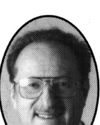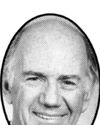Mr. Speaker, I listened very carefully to the excellent speeches made by my colleagues and I will not repeat what they just said. I simply want to know how some decisions that make absolutely no sense are arrived at.
What are the reasons for making a riding in eastern Quebec disappear? And I am talking about my riding, Matapédia-Matane. Geographically, it is one of the most beautiful ridings, and the people who live there and whom I have the pleasure of serving are truly attached to their RCM and to their parish. I have travelled throughout the riding and people are very disappointed. Is this decision based simply on a demographic ratio? Are numbers the only important factor? Apparently, yes, Mr. Speaker.
For a region like mine, a rural MP is terribly important. I do not mean to say that MPs from urban areas are not important, but I would say that maybe rural MPs are particularly important because of the distances involved. The various parishes are approximately ten miles apart. It takes hours, if not days, just to go around my riding.
In our part of the country, the MP plays an essential role. Just spend one day in my office in Matane, Amqui or Mont-Joli and you will know what is asked of an MP there. It is incredible. After going everywhere else, people end up inevitably in their MP's office because they trust him. He has a say in the important decisions on regional development.
Regions experiencing growth face different problems than regions which are in decline. Unfortunately, our region is in decline. Is the importance of rural people being neglected in the distribution of electoral districts? I think so. Rural people are not considered important and I would even say that they are treated as second-class citizens. I am sorry, Mr. Speaker, but there is no such thing as a second-class citizen. Every person has the right to live where he or she wants to, to feel a sense of belonging to the place where he or she lives, and that sense of belonging must be respected. Unfortunately, this was not to be the case in my riding.
In our view, the commission's proposal will only further impede recovery in an area that is already considered to be among the poorest. It will mean the loss of a much-needed voice in Parliament for eastern Quebec. It would make it harder for a member of Parliament to defend the interests of an ever-larger riding.
This proposal would not allow cultural, political and socio-economic forces to do all they could to bring about the economic recovery everyone wants, especially in our underdeveloped regions. This goes beyond simple statistical calculations and the straightforward application of a demographic formula.
I am very happy that the subject has been raised in the House because when I toured my riding, I noticed that there was widespread dissatisfaction. People were asking: Will we feel like voting in a federal election if the federal government shows no respect for our community, our living environment?
In Quebec, regional county municipalities are becoming more and more important and I think that it is a good thing. The boundaries of a federal riding are also very important. People are wondering whether they will go to vote if they change ridings.
As I said earlier, there are now five ridings in eastern Quebec: Bonaventure-Îles-de-la-Madeleine, Gaspé, Kamouraska-Rivière-du-Loup, Matapédia-Matane and Rimouski-Témiscouata. The ridings of Kamouraska-Rivière-du-Loup and Rimouski-Témiscouata have a population of about 73,000. The riding of Gaspé is the largest with an area of 12,268 square kilometres. My riding, Matapédia-Matane, is close behind with an area of 10,959 square kilometres, and the riding of Kamouraska-Rivière-du-Loup, is the smallest with 5,476 square kilometres. As for Bonaventure-Îles-de-la-Madeleine, it is the least populated, with 52,000 inhabitants. Is the number of inhabitants the only criterion? I say no. There are other criteria.
As for the number of municipalities in each riding, Kamouraska-Rivière-du-Loup has the most, 49. In Matapédia-Matane, there are 46. The riding of Gaspé has the fewest, 30.
In the proposals made by the commission, the number of ridings in the East would decrease from five to four. The riding of Matapédia-Matane would no longer exist. The riding of Gaspé would see its population increase from 62,000 to 80,000 with the reform. The riding of Gaspé-Matane would cover a gigantic area of 17,783 square kilometers.
If you tried to cover that distance in Toronto or Montreal, you would soon be all over the city.
The riding of Bonaventure-Îles-de-la-Madeleine will also be significantly enlarged to 11,375 square kilometers from 8,155 square kilometers.
The Bloc Quebecois cannot accept eliminating a riding in the East. If we lose a riding, we will lose political influence in the House of Commons, and so will our region. However, I share my colleague's view that hopefully in four years we will not have to ask ourselves these questions.
As a rural region, eastern Quebec would once more be marginalized by this redrawing of the electoral map. The rural community is in crisis. It is particularly the people from those small parishes who come to see their member of Parliament more often.
At a time when many organizations and stakeholders want to decentralize government services and bring elected representatives closer to the people, reducing the number of ridings would go against the wishes of the people.
We deplore that, again, taxpayers will have to bear the cost of this reform.
The riding of Gaspé-Matane would include communities like Amqui, Cap-Chat, Gaspé and Matane. So try to imagine the distance the member will have to travel to meet his constituents, and vice versa.
Earlier, a member said that VIA Rail did not exist anymore in our region. Buses are a rare sight. Our roads are in bad shape. What is left for these people to travel? They have nothing, and the government now wants to increase the size of their riding. That is absolutely senseless, and that is why I share my colleagues' view.











